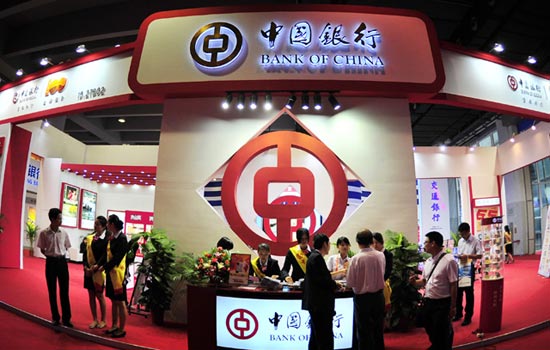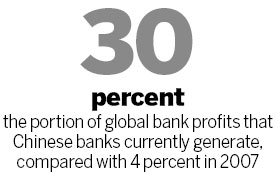US 'golden opportunity' for Chinese banks
Updated: 2012-07-31 11:45
By Ariel Tung in New York and Chen Jia in San Francisco (China Daily)
|
||||||||
Big Four banks still able to extend credit as Western counterparts recapitalize
Three years ago, Chinese banks provided support to various big US companies that were finding it difficult to obtain loans from lenders in their own country.
While helpful to businesses that were in need of capital, the extension of credit also dovetailed with the banks' desire to expand overseas.
The most prominent example of such lending came in December 2009, when General Electric Co's financing unit, GE Capital, obtained a three-year, $400 million loan from Industrial and Commercial Bank of China Ltd.
ICBC, the world's biggest bank measured by market capitalization, made the loan a year after GE Capital had entered, and then quickly exited, a bailout program offered by the US government.
The Temporary Liquidity Guarantee Program had been designed to get big banks to lend to each other, thus adding liquidity to the financial system at the height of the world economic crisis.
The loan had come at a fortuitous time. ICBC had set up its first US branch in New York in 2008, intending to concentrate on commercial lending.
It soon began cultivating relationships with US-based multinational corporations that were seeking "to maintain stronger financial statements and support for their businesses", said Bi Mingqiang, general manager of ICBC's New York branch.
That same year, at the peak of the US recession, many of these companies responded warmly to Asian banks' willingness to lend.
"We have established very close business relationships with many top multinational corporations since the financial crisis," Bi said. "ICBC believes now is a good time to do more business in the United States."
Among US companies, the bank has also provided loans to the computer technology company Dell Inc, the delivery company United Parcel Service Inc and Southwest Airlines Co.
With many Western banks still keeping a tight rein on capital, Chinese banks have a "golden opportunity" to play a greater role in the US, said Chew Ping, managing director of China operations for Standard & Poor's.
"However, they must be aware that they are operating in a market that is very different from China's market," he said. "This is a learning process for them."
Just five years ago, Chinese banks were unlikely to lend to US corporations, said Brian Caplen, editor of the UK financial magazine The Banker.
"Chinese banks still are able to extend credit, while US and European banks incurred so many bad loans during the crisis that they need to recapitalize," Caplen said. "Their capacity to lend is less now."









